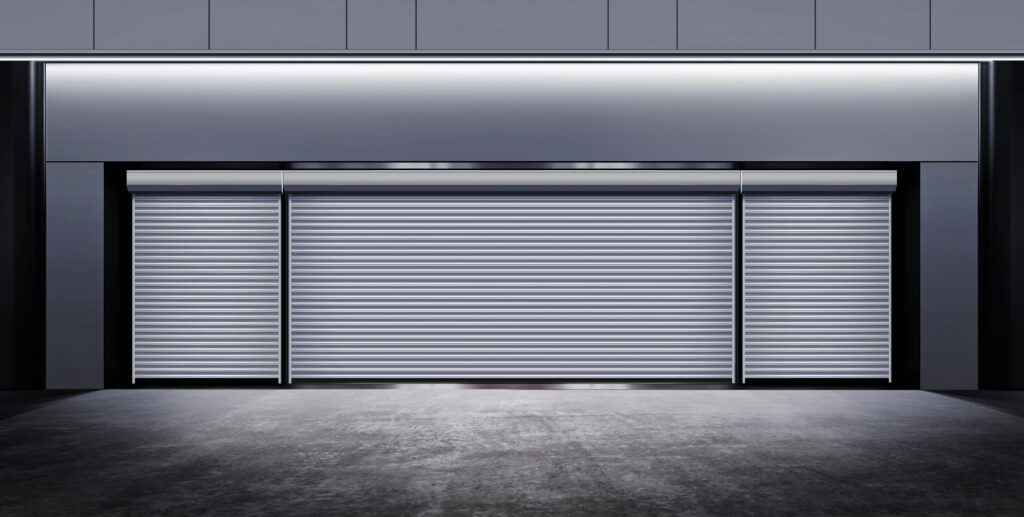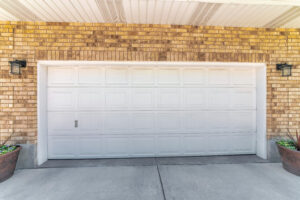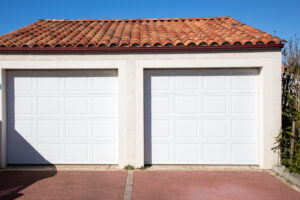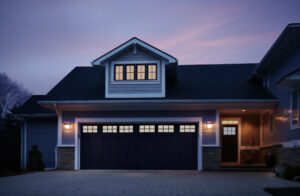In residential settings, garage doors provide occupants and valuables with enhanced security.
Likewise, in commercial settings, garage doors provide privacy by restricting access to unauthorized areas while also providing security for valuable business items.
From security, privacy, and insulation against the elements, there is a garage door designed for different commercial scenarios.
This article is dedicated to educating you on the distinctive features of each of these doors so that you can clearly understand them when shopping for one.
Insulated Doors

Modern Garage Doors in NJ
These include panels, for instance, steel and other materials, sandwiched between insulation materials on both surfaces. Most of these insulation materials include polystyrene, polyurethane, fiberglass, and other higher R-value materials. Given their ability to weatherproof against the elements, they come in handy in commercial settings where sensitive items such as food and horticulture must be stored in a temperature-controlled environment. Besides being climate-proof, the enhanced insulation achieves some level of proof against sound, which is a bonus.
Security Grilles and Shutters
This door type includes perforated aluminum or steel security grilles. They are often used for providing security while allowing visibility and airflow. Coming in both manual and motorized options, this door is mostly used for enhanced security and space-saving commercial settings. Due to the simplicity of the design, without the need for panels and insulation layers, security grilles and shutters are relatively cheap, compared to other types.
Fire-Rated Doors
As you may realize from the name of the door, it is specially made to bolster safety in the event of a fire breakout. In the event of a fire breakout, the door closes automatically, thereby preventing the spread of flames and smoke. The closing cuts oxygen considerably, which is a requirement for burning, thereby putting the fire out. Existing in both roll-up and sectional designs, they are crafted from heat-resistant materials like steel.
Sectional Doors
They are crafted from steel, aluminum, or fiberglass panels, which are joined by hinges. During the operation of the door, the panel follows an up/down trajectory, guided by a track system. They are commonly applicable in warehouses, loading zones, and automobile repair shops where easier cleaning is necessary given the heavy use of grease and oils.
Given their extended lifespan and versatility, sectional doors boast an increased preference in commercial applications since they can be designed in various finishes and styles. Some even come in robust R-value materials for insulation against the elements.
High-Speed Doors
To reduce the time taken to operate these doors, they open and close much faster than standard doors. The increased operation speed is enabled by their lightweight nature, provided by light materials such as PVC. At times, the materials can be transparent to allow visibility, with some being heat resistant, enabled by some level of insulation. The speedy operation comes in handy where climate control or security is critical, such as food processing plants.
Overhead Doors
Though typically larger, overhead doors operate similarly by moving up and down as they close and open. The mechanism relies on a track system, or the door panel can fold back. Given their bigger sizes, they are commonly used in extensive industrial facilities, aircraft hangars, and loading bays. Due to their industrial application, they are durable, can accommodate large openings, and are available in various materials for aesthetics.
Aluminum Full-View Doors
These doors have large transparent glass panels framed by aluminum to allow for visibility and increased natural light. Depending on the commercial usage, they can be either insulated or non-insulated. Insulated options are used in settings like food processing plants where climate control is necessary. Non-insulated options come in handy in settings where visibility and aesthetics are the primary goals. They are popular in car dealerships, service stations, and retail spaces.
You can pick a piece that best suits you by carefully evaluating your commercial needs, including security, insulation, privacy, budget size, durability, aesthetics, and overall functionality. Since it may sometimes be a little challenging to navigate this selection process, involving a commercial door professional can make the process easier for you. They can help evaluate your needs based on the commercial settings and determine the most appropriate door. This is in addition to performing a professional installation offering unparalleled service for years. Since they are the same people who should conduct periodic maintenance, you must vet them effectively. A professional with a reputable track record is more likely to deliver quality results than one with a bad reputation.




